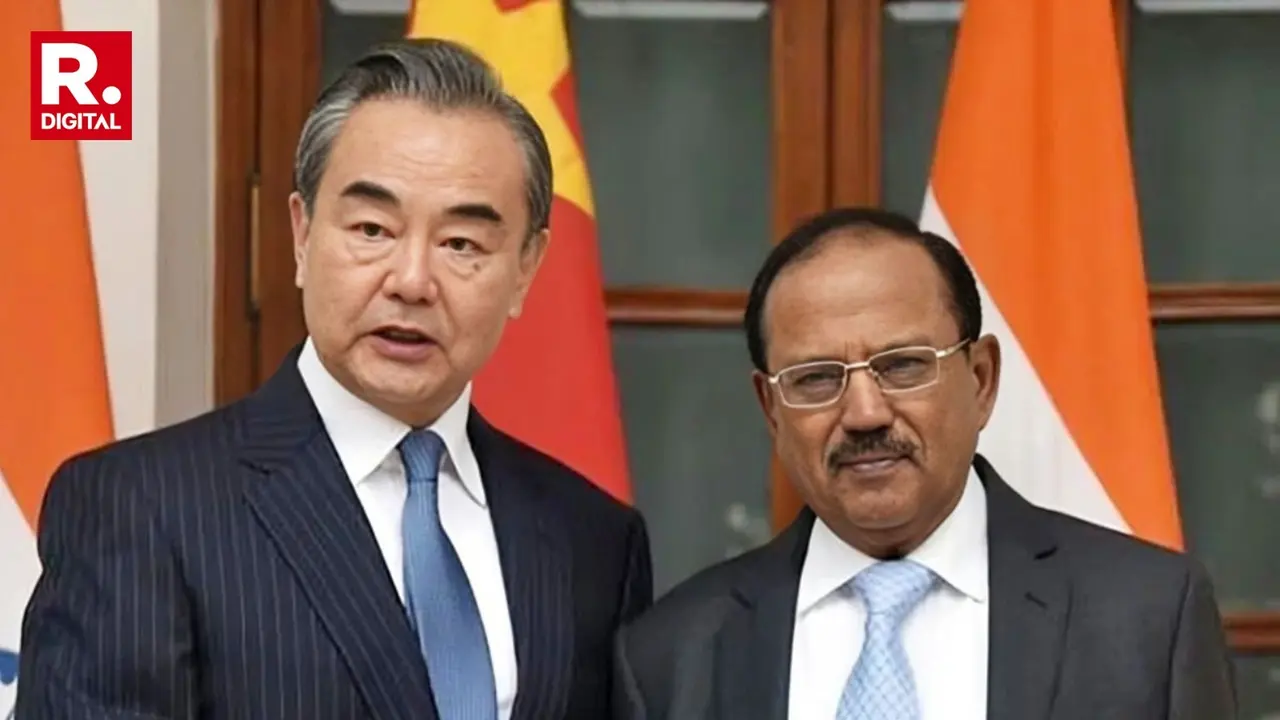Updated 24 June 2025 at 14:13 IST
India and China Break the Ice Again: Here's What They Agreed on in Beijing
Ajit Doval attended SCO meeting in China, agreeing to strengthen India-China relations and promote people-to-people exchanges.
- World News
- 3 min read

New Delhi: India and China have reaffirmed their commitment to improving bilateral relations and maintaining peace along their border during a high-level meeting in Beijing on Monday. The discussion took place between Indian National Security Adviser Ajit Doval and Chinese Foreign Minister Wang Yi.
According to a statement from China’s foreign ministry, Wang noted some recent progress in ties between the two countries. He stressed the importance of better communication, building mutual trust, and resolving practical issues. Wang said both sides should continue to see each other as development partners rather than threats, and as allies rather than competitors, in order to achieve mutual benefit.
He further said both nations should uphold the principle of good-neighbourly relations, work towards shared growth, and handle sensitive matters wisely, reflecting the historical understanding of two ancient civilisations. Wang also called for greater focus on cooperation and enhanced exchanges at various levels and in different areas.
Doval was in China to attend a meeting of top national security officials from member states of the Shanghai Cooperation Organisation (SCO), a regional security grouping.
Advertisement
A statement from Delhi released after the meeting said both sides agreed on the need to strengthen overall India-China relations, including promoting people-to-people exchanges.
During the discussion, which came about six weeks after a clash between India and Pakistan, Doval also highlighted the need to fight terrorism in all forms to preserve peace and stability in the region. The recent conflict followed the Pahalgam attacks in Indian-administered Kashmir in late April, which resulted in more than 20 deaths.
Advertisement
India blamed Pakistan-based militant groups for the attack and accused Islamabad of supporting terrorism in Kashmir, an allegation Pakistan has denied. During the four-day confrontation, Pakistan claimed its Chinese-made J-10C fighter jets had downed multiple Indian aircraft, drawing attention to Beijing’s role.
Wang had also hosted Doval in Beijing last December, when both sides agreed to rebuild relations following a major downturn caused by a military stand-off in eastern Ladakh. That crisis, which started in May 2020, led to a deadly clash a month later.
The border tensions in the Galwan Valley were eventually settled after the two countries agreed to disengage from the last two points of conflict- Demchok and Depsang, in October last year.
As part of broader steps to improve ties, India and China also decided to resume direct flights, restart visa services, and allow Indian pilgrims to travel again to Mount Kailash and Lake Mansarovar in China’s Tibet Autonomous Region.
According to Chinese news agency Xinhua, the first group of Indian pilgrims arrived in southwest Tibet on Friday for a 12-day journey. A second group is expected to enter China on Wednesday.
Published By : Shruti Sneha
Published On: 24 June 2025 at 13:30 IST
